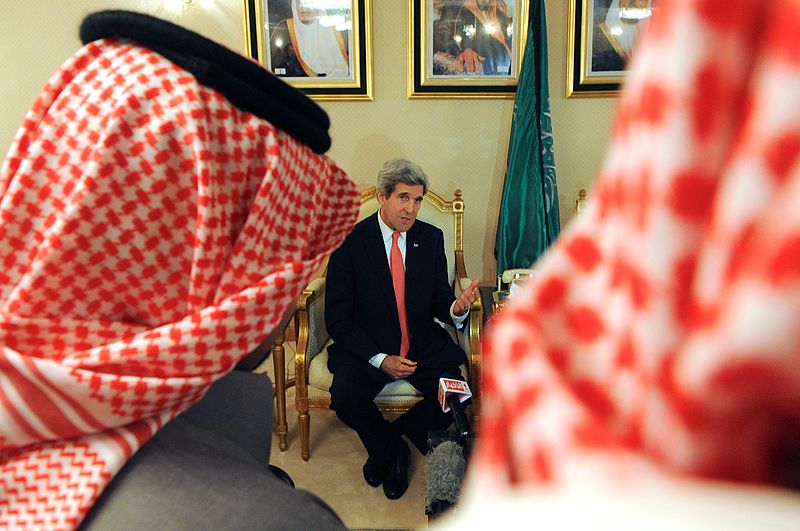5 March 2015 – Washington, DC – Americans for Democracy & Human Rights in Bahrain (ADHRB) sent a letter to the office of Secretary of State John Kerry today, urging him to use his trip to Saudi Arabia as an opportunity to press Saudi officials on human rights reforms. Secretary Kerry will meet with King Salman bin Abdulaziz al-Saud and other Saudi officials today in Riyadh.
Citing the “astonishing level of impunity” with which the Saudi government violates human rights, the letter asks the Secretary to “reevaluate current U.S. policy toward the Kingdom of Saudi Arabia and to develop and implement policies that will more effectively support the need for increased human rights protections.” Such protections are necessary for civil society activists and peaceful critics of government policy. Authorities have attempted to shutter the Saudi Civil and Political Rights Association (ACPRA), which has called for civil and political reforms. Eleven of its founding members have either been arrested or currently face the prospect of trial and imprisonment. In recent years, the Saudi government has also stepped up its prosecution of human rights defenders. In July 2014, the authorities utilized a new anti-terrorism law to sentence human rights lawyer Waleed Abu al-Khair to 15 years in prison, a 15-year travel ban, and a $53,000 fine.
In addition to highlighting the persecution of political activists, the letter reminds the Secretary of the government-sponsored discrimination faced by Saudi women. Saudi officials still recognize and uphold the Guardianship System, which prevents a woman from attending university, gaining employment, or marrying without obtaining the permission of a husband or father. Authorities still prevent women from driving. Women who speak out on these issues are subject to censure, travel bans, and even imprisonment.
“Secretary Kerry spoke to the UN Human Rights Council earlier this week and affirmed the United States’ commitment to supporting rights and freedoms abroad,” said Husain Abdulla, Executive Director of ADHRB. “Just a few days later, he has an opportunity to follow through on this commitment in his talks with the head of a government that criminalizes free expression and peaceful political dissent. We hope that he backs up his words with action.”
The letter ends by requesting the U.S. policy toward Saudi Arabia include:
- Sustained public and private calls for the Saudi government to adhere to its human rights obligations, both as a member of the UN Human Rights Council and as a signatory to the Convention against Torture (the CAT) and the Convention on the Elimination of All Forms of Discrimination Against Women (CEDAW);
- A review of the Technical Cooperation Agreement between the Department of State and the Saudi Ministry of Interior (MoI) to ensure that Saudi forces receiving U.S. training under the agreement are not involved in human rights violations;
- Public calls for King Salman to reverse his predecessor’s restrictive policies toward civil society organizations and activists;
- Public calls for the Saudi government to speed its implementation of all Universal Periodic Review recommendations accepted during its second-cycle UPR review.





